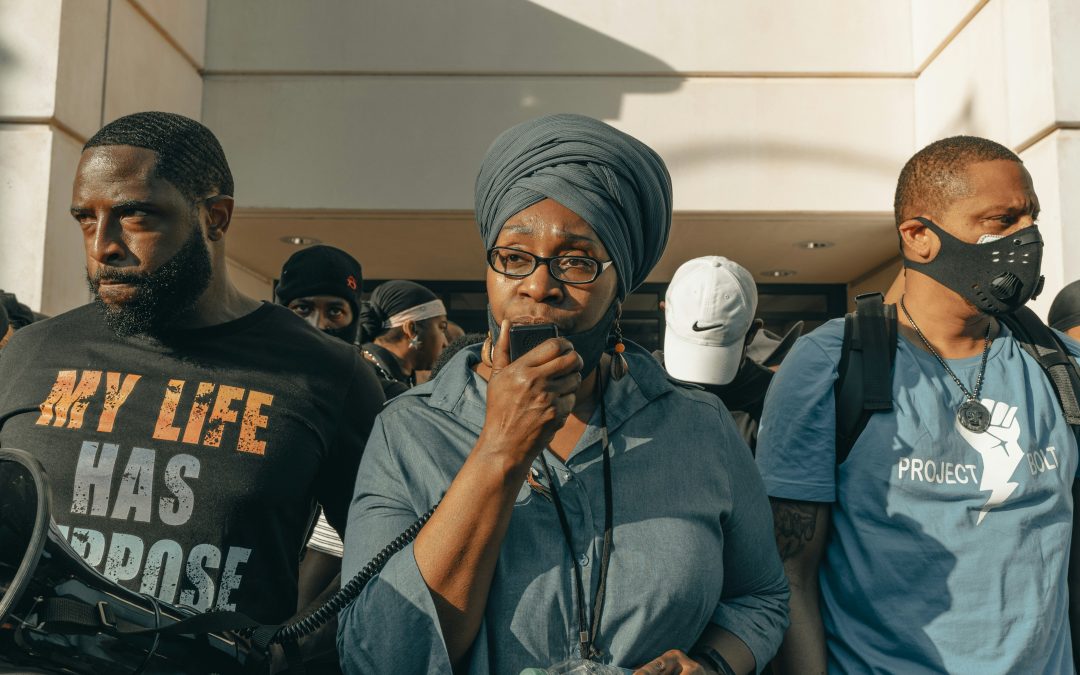Photo by Clay Banks on Unsplash
We can’t deny it any further – racial injustices in America are real, and it’s unfortunate that our current generation is still aware and experiencing it.
How do you become an ally against racial injustices within a system that perpetuates it?
People of color don’t need saving – they only need to be seen, heard, and recognized. Their pain is not something to be ignored, nor fetishized or commodified. In the fight against systemic cruelty, being an ally against racial injustices is needed now more than ever.
However, working towards dismantling this issue is only a tiny fraction of the bigger picture. But being an ally shouldn’t be limited to certain things either. Whichever race, ethnicity, gender spectrum, or any other category you identify as – being an ally should be our common ground. Furthermore, it is a commitment to understand, empathize, and take action as an ally against racial injustices.
It Always Starts with Educating Oneself
Start by educating yourself about marginalized communities’ historical and present-day experiences. It could be books about a story centered on racism and slavery, looking up articles, and other informative resources. Brushing up on the basics of racial injustices that these minorities experience is crucial in understanding this complex social issue.
It may even be tempting to directly ask the next person of color you know about their experiences with inequality. However, doing so might be unfair on their part due to the emotional and mental burden it places on them. An ally takes time to read, listen, watch, and broaden their perspectives on our nation’s social issues.
Becoming an ally against racial injustices in America is a powerful way to contribute to positive change. You can make a difference, even if it’s a little. Together, we can create a future where racial injustices are no longer tolerated and where equality can thrive.
Being an Ally Against Racial Injustices with Humility
Consent is always the key to connecting with others, especially when it concerns tough conversations. Given the chance as an ally against racial injustices, here are ways you can approach them:
- “I just want to know what women/people of color struggle with daily. These are mostly things that I have overlooked before. Would you feel comfortable sharing some of your experiences?”
- “If there’s anything that you wish your white colleagues or peers would do more to improve things, what would it be?”
- “What are the things we could stop doing every day?”
- “What advice would you give to an ally against racial injustices to make you feel safe in any space?
Some people of color may still find these questions uncomfortable to answer. However, starting with empathy and sensitivity goes a long way, so we should choose words wisely. Some people may have different experience levels, even from the same group.
Furthermore, avoid generalizing from the stories of one or two people. Get as many perspectives and voices as possible, and be attuned to their unique views and commonalities.
The Baffling Existence of Internalized Racism
Isn’t it interesting (sarcastically) that people of color can still be racist against each other, too? Yes, internal racism exists, and it’s also a rampant problem in the land of the free.
Internal or internalized racism refers to when people from marginalized racial or ethnic groups perpetuate negative beliefs and prejudices against their own. This complex phenomenon can be baffling because it seems counterintuitive, especially for someone with opposing views about their race or ethnicity. However, being an ally against racial injustices also means recognizing internalized racism as a product of systemic racism.
Furthermore, from an early age, we have been exposed to various racial stereotypes. Media, educational systems, and social interactions have ingrained it in our minds. Moreover, dominant cultural narratives often place white supremacy as the standard of beauty, success, and intelligence. Meanwhile, it also marginalizes and devalues other racial and ethnic identities. It’s also sad how these groups still have to prove themselves to the world. They have hopes and dreams of living a normal life like everyone else.
The Cost of Being an Ally Against Racial Injustices
Nothing – as in, nothing costs more than simply being kind and understanding to be an ally against racial injustices. While we still have a long shot until we successfully create safe spaces and equal rights for the POC, we can start by being kind.
Being an effective ally requires commitment, time, and energy. Staying informed about racial issues is one thing, but it matters more when action is involved. This can also mean sacrificing personal time and resources that could have been allocated to other commitments and interests. But even without magnificent resources at hand, you can still be an ally against racial injustices in your own way.
What matters is that your heart should be in the right place.


Trackbacks/Pingbacks